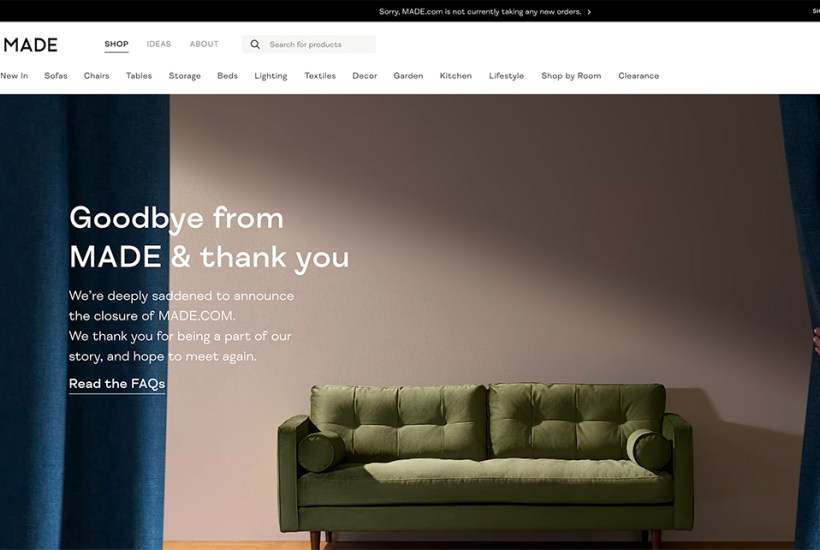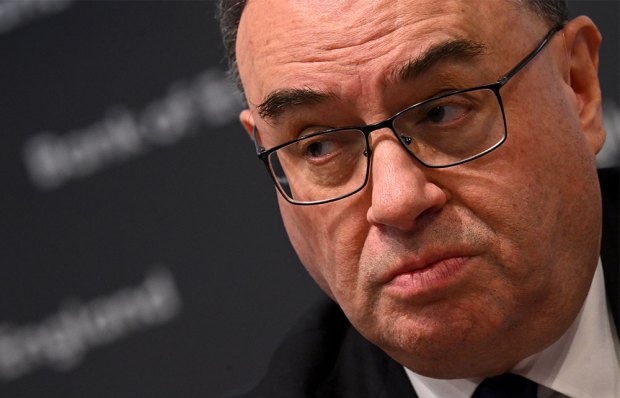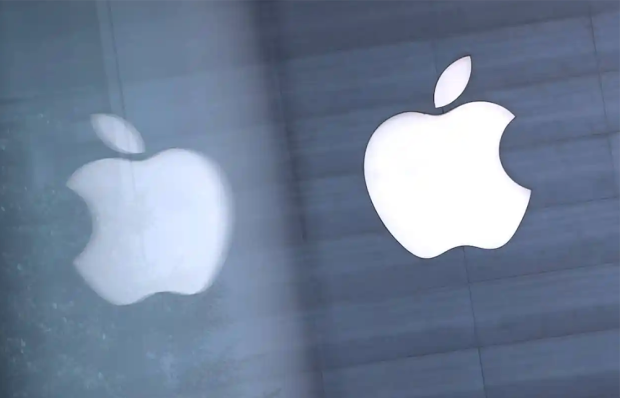‘Reparations’, much bandied about at Cop27, is a dangerous word. It speaks of an admission of historic guilt, which no one can deny has a place in public discourse. But its intention is to put a punitive price on guilt itself, rather than to advance collaborative work needed to rectify damage that can be traced back to bad acts, whether committed through greed, prejudice, aggression or ignorance. It says, in short: ‘Don’t send us your supposedly superior expertise and your lectures about how to improve ourselves. Just send cash. And keep sending it until your tortured conscience is assuaged.’
But in relation to climate impacts, the argument over who pays, who receives and how much would rage for decades while the damage gets worse and the repair costs rise. And do you imagine China would ever pay a single cent? Boris Johnson was right when he said at Sharm El Sheikh that no country has the resources to pay in full for past carbon emissions, but ‘what we can do is help with the technology that can help fix the problem’. And of course that technology will come far more from entrepreneurship and private-sector industry than from the interventions of governments, whose role should be prodder and catalyst.
This theme has been in my mind since my recent visit to Minneapolis, where I was startled when a black activist, having catalogued the many ways the white majority had disadvantaged his community, replied to the well-intentioned question ‘What should happen next?’ with the single word, ‘Reparations’. Not better schools, better housing, more help for small businesses, more cross-community co-operation; not better oversight of local policing. I don’t suggest for a moment he had no reason to feel bitter about history, but bitterness rather than willingness to rebuild was what I took from his answer. And so we keep hearing that word.
But in the long history of reparations there can be few cases in which recipients felt wholly satisfied. By contrast, we have the very different example of the post-second world war Marshall Plan of US aid for bombed-out Europe which – alongside Germany’s own recovery effort – set the continent on a positive new path. A cliché this may be, but every global issue from climate change to postwar reconstruction and mass migration is surely better addressed by seeking a new multilateral Marshall Plan than by repeatedly asking: ‘Who’ll pay for history?’
Hands off our Innovators
This week sees the grand finale of this year’s Spectator Economic Innovator of the Year Awards – and next week I’ll reveal our glittering line-up of winners. What I’m hoping I won’t also have to tell you is that their prospects have been blighted by Jeremy Hunt’s forthcoming statement: pre-Budget spin has suggested higher capital gains and dividend taxes, a squeeze on entrepreneur relief and even a hike in the cost of registering a new company. Given the role of innovative high-growth businesses in economic recovery, those moves would be ill-aimed for no obvious political gain. Big targets await you, Chancellor, which few voters will defend – banks, energy companies and private equity funds, for starters – but please keep your sticky mitts off our Innovator entrants.
Unmade
Made.com may have been ‘the millennials’ favourite online furniture store’ but it never entered my shopping universe and has now become the first significant retailer knocked out by the cost-of-living crisis. I can see that its off-white Isadora sofa whose ‘curved cocoon shape will hug you in and make a statement while it’s at it’ might have suited my late golden retriever, but at £1,100 I can’t imagine buying it for myself whatever it had to say. Style apart, this boom-bust story feels like a dotcom parable from an earlier era, not least because Made’s chairman until 2016 (working with the founder, Ning Li) was Brent Hoberman – himself co-founder of lastminute.com, one of the few British ventures to achieve fame in the dotcom bubble of the late 1990s.
Made claimed to be disrupting the furniture sector by using crowdsourcing to identify popular product lines, but it never came close to making a profit. On the strength of a lockdown sales surge, it floated in June last year with a valuation of £775 million, three times 2020 revenues, only for investors to watch the share price evaporate to next to nothing as cash ran out.
Ning Li has rejected several low bids that might have kept the business alive, and Made this week went into administration – the brand name may be bought by Next or Frasers Group, the bargain-hunting pirate ship now captained by Michael Murray, the son-in-law of our old friend Mike Ashley. As for where to find furniture online for your first-time flat, my millennial chums tell me Wayfair is the way to go.
For the chop
City veterans will share my sadness at the fate of Simpson’s Tavern, the chophouse off Cornhill that dates from 1757 but has been locked out by its Bermudan-registered landlord in a dispute over rent unpaid during the pandemic. A reader who lunched there shortly before the closure tells me the place was ‘full of history but could have done with a jolly good clean’ – which I suppose is one way to maintain an authentic 18th-century ambience.
It’s 40 years since I last tucked into a bloody Barnsley chop among pinstriped Simpson’s regulars who liked to while away lunchtime by gambling on banknote serial numbers. The management has launched a crowdfunding appeal for the £385,000 rent deficit and had attracted £71,000 by last Tuesday from 1,700 donors, with 41 days to go. But I’m sure the shortfall could be less laboriously raised from the annual bonuses of a single lunch table of today’s forex traders and hedge-fund players who have won big this year in a newer version of banknote poker, namely shorting the pound.
The post Made.com is a dotcom parable from an earlier era appeared first on The Spectator.
Got something to add? Join the discussion and comment below.
Get 10 issues for just $10
Subscribe to The Spectator Australia today for the next 10 magazine issues, plus full online access, for just $10.
You might disagree with half of it, but you’ll enjoy reading all of it. Try your first month for free, then just $2 a week for the remainder of your first year.















Comments
Don't miss out
Join the conversation with other Spectator Australia readers. Subscribe to leave a comment.
SUBSCRIBEAlready a subscriber? Log in